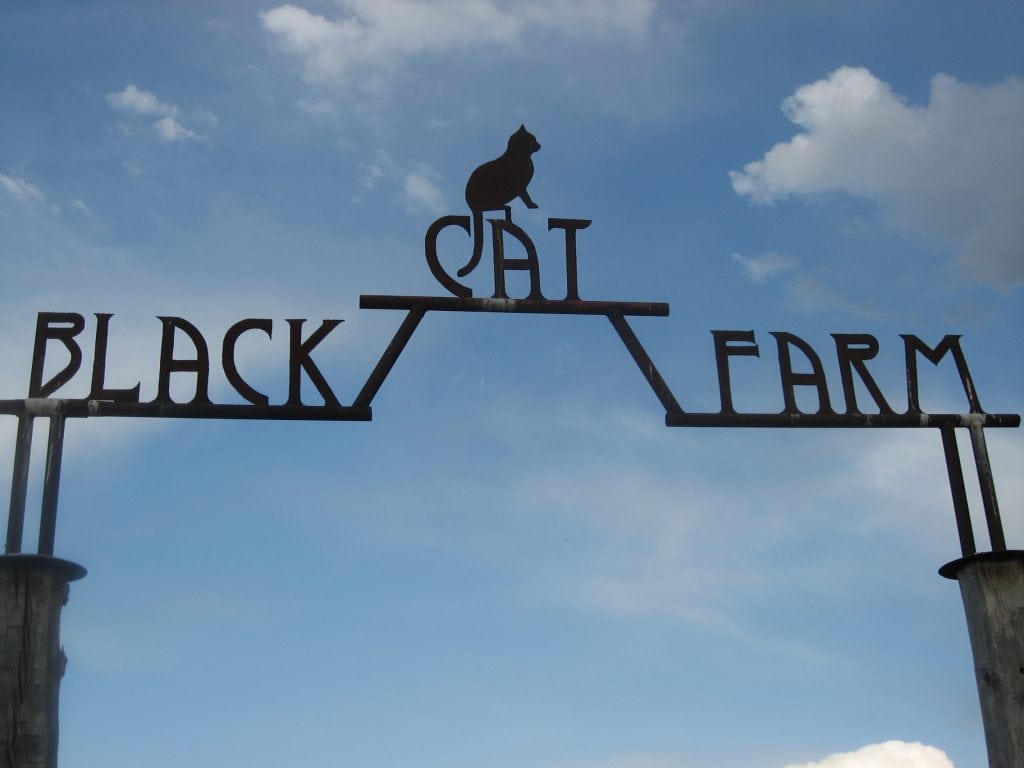
The Black Cat Farm booth at the Boulder Farmers’ Market will include the following produce on November 14, 2015:
- Asian greens mix (chrysanthemum, ruby streaks mizuna )
- Cardoons
- Carrots
- Kale, Red Russian
- Komatsuna (Japanese mustard greens)
- Leeks
- Lettuce mix
- Lettuce, Bibb
- Mizuna (ruby streaks, standard)
- Mustard greens
- Parsnips
- Radishes (black, Japanese winter, red, watermelon)
- Sen Po Sai (Chinese collards)
- Sorrel
- Squash (acorn, butternut, Tromboncino)
- Swiss chard
- Tatsoi
- Turnips (Hinona Kabu, magenta)
Mulefoot pork cuts, sheep pelts, and pig leather will also be available.
Building up the farm
Unlike people who spend a lot to purchase a farm in Boulder County that is fully equipped and developed, Eric and Jill used a credit card to start their farm and have been developing their expertise and infrastructure ever since. This has meant that they have had to put together makeshift solutions for a lot of inefficiencies and inconvenience while they were learning about farming and what their farm needed.
Eric says that there is nothing that produces as much joy to a farmer as a spigot that is located exactly where it is needed rather than 400 yards away.
With the success of Black Cat Farm-Table-Bistro and Bramble and Hare, Eric and Jill have had the opportunity to add to their infrastructure to make taking care of the animals and growing vegetables safer, easier, and cost less. In the process, they have invested all of their surplus into the farm while slowly make the farm more sustainable as a business. Eric says that each infrastructure project has solved an ongoing problem.
Recently, they installed a water line for the pigs to change how they water them. Instead of lugging hoses, which sometimes freeze during the water, to bring water to the pigs, the pigs now can walk to a centralized watering area.
Another big project, which Eric says gave him goose bumps, was installing underground irrigation pipe to replace numerous hoses crossing multiple fields. He estimates that it will cut down the amount of time that a farm worker needs to spend on each watering day from 12-14 hours to 8 hours. Since watering during the summer takes places from two to three days per week, this is a significant savings in labor.
With a slew of infrastructure projects accomplished this fall, the future is brighter all the time for the farm.
